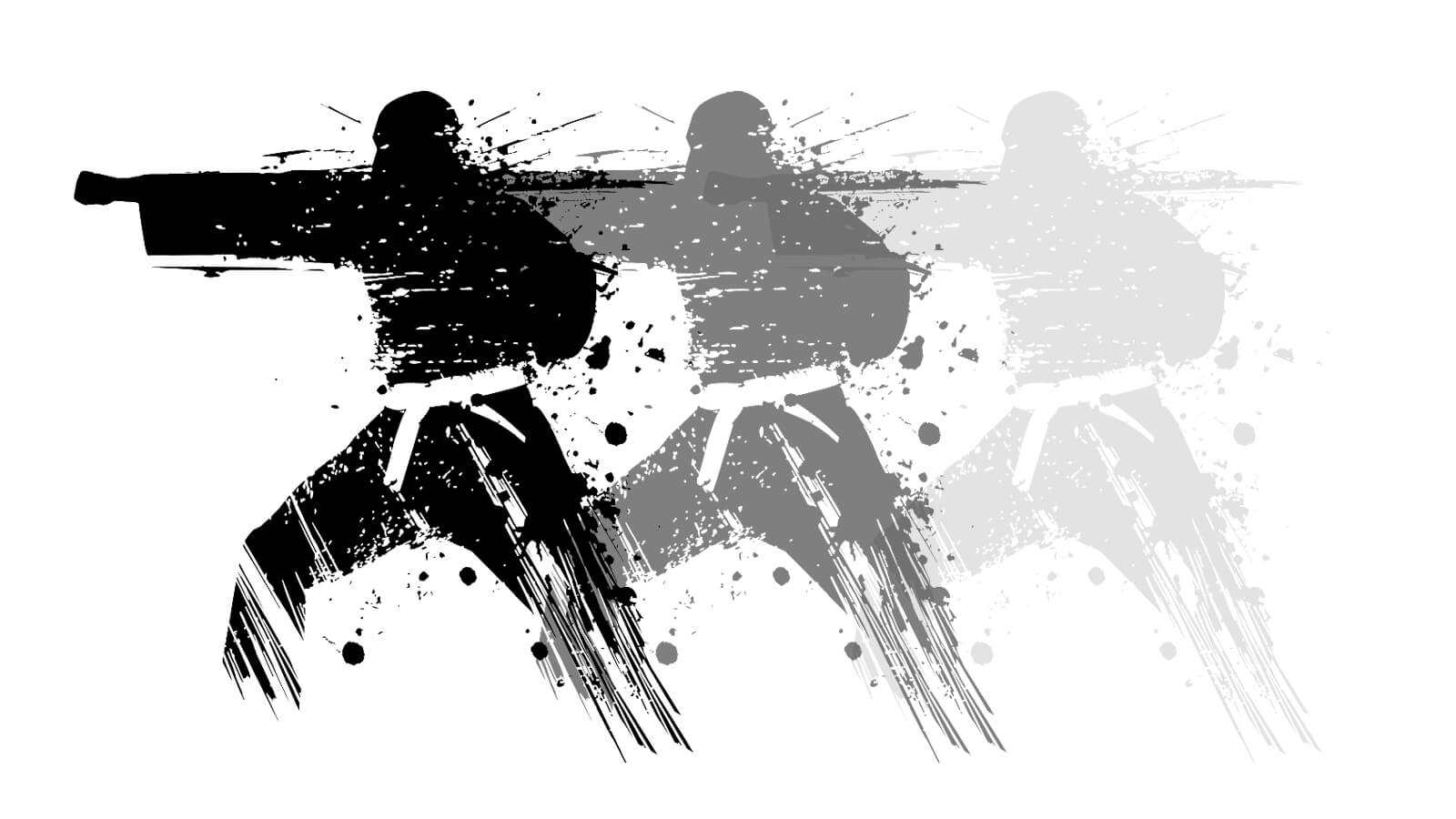Become a supporting member to watch the full conversation
Humanity is entering the Transformation Age, a new era of human civilization, with Integral Consciousness rising at its leading edge. Our members don’t use Integral Life as just another media subscription they use weekly or discard. Instead, most stay with us for years, using Integral Life to learn Integral Philosophy and build an integral mind slowly, methodically and when they need it. We’re here to help you shape the future that’s emerging no matter where your life takes you.
Get Full Access For $1 (7 days)* Or explore all membership plans → * Trial price for the first 7 days, then $20/month. Cancel or switch plans in 2 minutes at any time.“In short, I start to remember how I have been pinching myself. I see how I have literally been attacking myself. That understanding felt through-and-through releases energy from the war of muscles, energy which I can then direct outward toward the environment instead of inward on myself. Instead of squeezing and attacking myself, I can ‘attack’ a job, a book, a good meal, and thus learn afresh the correct meaning of the word aggression: ‘to move toward.’”Ken Wilber, No Boundary
Dr. Keith and Corey explore the many ways passive aggression, anger, and codependence create more separation between people and degrade our capacity for love, while assertive processing of anger creates more intimacy and safety. Learning how to take a pause before aggressive or passive-aggressive action gives the opportunity to cross-validate through all four quadrants, and to take our overall kosmic address into account.
The Happy Yes
by Dr. Keith Witt
One great principle of happy relationships is to say “Yes” as much as possible. Couples who do this are happier, healthier, and have better sex lives. “Yes, I’ll remember to wipe the sink.” “Yes, I won’t grab your behind while you’re cooking dinner.” “Yes, when I’m mad at our son I’ll do my best to use a kind and patient tone.” “Yes, I’ll help you move the couch.” You get the idea.
But there is a big caveat on “Yes.” If you’re going to say, “Yes,” make it a happy yes!
Why? Because an unhappy or resentful “Yes” is as bad as “No!”
A request is an opportunity for intimacy. A glad “Yes” with mutual love and gratitude generates satisfying love. That’s why it’s so good to say “Yes,” as much as possible to your partner’s explicit and implicit requests, and so good to express gratitude for everything your partner does to support you and take care of themselves.
On the other hand, sometimes we have to say “No.” If something feels wrong or will leave you resentful, it’s probably not going to help your relationship to ignore your intuition and begrudgingly comply. Not trusting inner wisdom and going along with what feels wrong in your heart leads to neglect, codependence, and disconnection.
If it feels wrong to say “Yes” say “No” as kindly and respectfully as possible. This keeps you emotionally engaged and opens you to potentially productive dialogue (which enhances intimacy) if your partner disagrees.
Everyone has heard and said a begrudging “Yes.” Your wife asks you to do the dishes right after the football game ends, and you roll your eyes and say with no humor, “All right! I’ll do them!” Now she’s irritated with you and you’re down on her for interrupting.
As your husband is leaving for work, he asks you to call the insurance company because they double billed your account. You feel a flash of anger at him (and the insurance company who are a nightmare to deal with) and snap back, “Of course I’ll call them. I do all the dirty work around here!” Now, all day, when one of you thinks of the other, a negative story of him or her being a pain is likely to show up. This moment of begrudging “Yes” has created a whole day of hostility.
It is so better to feel that flash of irritation, take a deep silent breath, and tell yourself, “If I say yes, it needs to be a glad yes. I love this person and want him/her to feel loved by me.” Then you might:
Smile and tell your wife, “Sure I’ll do the dishes. Why don’t you have a glass of wine and talk with me while I work.”
Smile and tell your husband, “Yes, I’ll call them, but I’ll only wait one hour on hold.” He laughs and sympathizes and thanks you profusely for taking the trouble.
Because we’re almost all of us good people and like to say yes to people we love, we usually say “Yes,” but often with a little attitude—a critical dig, or a mild complaint. These passive aggressive responses completely wreck your “Yes.”
If you’re going say “Yes,” say it gladly and generously, creating a shared moment of loving connection. The more such moments you and your partner create, the happier and healthier you both will be.
What?
It’s sometimes irritating to be asked to take care of a problem—most requests are to help solve a problem. Irritation is a natural human reaction to being interrupted and pressured to do something important for someone else. That irritation, that mild anger, is a crossroads. Indulge the anger by believing a critical story of the other and you disconnect from the other while subtly communicating disapproval. Your partner feels disapproved of whether you say “Yes,” or “No,” and this can trigger them to cultivate a negative story about you. Regulate the anger into empathy and generosity and you can create an intimate moment, even if you say “No!”
This is hard!
Why is regulating irritation to compassionate understanding so difficult? Because anger blocks love. Anger disconnects us from the irritating other and prepares us for fight or flight. Compassion and generosity prime us for intimacy.
Anger blocks love
In both interpersonal relationships (with others) and intrapersonal relationships (with the different parts of ourselves) anger immediately reduces empathy and self-reflection. Anger means threat, and we’re genetically programmed to take threats seriously. With a threatening person, the first instinctual line of defense is to stop empathizing with someone who’s a danger to us.
Over the last million plus years, the biggest threats to people have been other people, and so we’ve evolved social reflexes to deal with menacing others. After we psychologically separate, these reflexes include pushing back, withdrawing, complying, counterattacking actively, counterattacking passively, and seeking allies.
The best response is seeking compassionate understanding of ourselves and the other
If we can feel the anger, tolerate it while resisting the angry story that arises with it, and reach for compassionate understanding, we can often turn the irritating moment into deeper intimacy and self-knowledge.
Staying present, attuned, and holding a caring container when irritated helps us open channels to give and receive love. Love heals.
But what about getting angry at myself?
Intrapersonally, we all have inner critics who criticize and attack us when our unconscious decides we’ve violated a moral value. These inner critics were programmed as we grew to try to help us be virtuous. When we look more deeply into them, we discover that each one has a hostile mask over a child trying to help us survive and thrive, and longing to be loved and relieved of the burden of trying to keep us on the straight and narrow.
That child at the heart of the inner critic resents the thankless task of helping by attacking, and anger blocks receiving love. These inner parts (inner children) want to receive love but resist receiving love because they are pissed off! This is frustrating for an inner child, who blames us and others for not feeling loved.
By tolerating anger and reaching for compassionate understanding of our inner critics, we can create present, attuned, caring containers that eventually help our inner children receive love, and thus help the inner critic evolve from an opponent into an ally. Even if we agree with the critique and decide to change, the “Yes” becomes a happy yes to ourselves rather than a resentful one.
Happy yes
All the above is why “Yes” to a request (from another or from ourselves) is not enough — we need to do the work so that each “Yes” is a happy yes, one we believe serves the highest good.
Music by Justin Miles and Stuart Davis
Previous Episodes of Witt & Wisdom
The Dopamine Revolution: From Human Evolution to Modern Crisis
 Dr. Keith Witt
Dr. Keith Witt
 September 12, 2025
September 12, 2025
The Magic Mirror: How AI Is Reshaping Your Mind
 Dr. Keith Witt
Dr. Keith Witt
 August 4, 2025
August 4, 2025
Everything Is Relationships: The Hidden Force That Shapes Reality
 Dr. Keith Witt
Dr. Keith Witt
 July 10, 2025
July 10, 2025
Between Two Infinities: What Does It Mean to Live a Good Life?
 Dr. Keith Witt
Dr. Keith Witt
 May 9, 2025
May 9, 2025
Every Scar Has a Story: Rewriting the Narratives That Shape Us
 Dr. Keith Witt
Dr. Keith Witt
 May 2, 2025
May 2, 2025
The Turquoise Dialectic: Expand Your Cosmology Through Integral Dialogue
 Dr. Keith Witt
Dr. Keith Witt
 March 7, 2025
March 7, 2025
Transform Your Motivation System
 Dr. Keith Witt
Dr. Keith Witt
 February 14, 2025
February 14, 2025
Suggested Practice
The 3-Body Workout
Huy Lam and Terry Patten
This series of movements (sometimes called Integral Kata) is a way to contact and exercise your three bodies: physical/gross, subtle, and causal.
Free Email Course: Build Your Integral Life
We created 24 free lessons that can help you learn the Integrative Mindset needed to thrive in the rapidly-evolving world of the 21st century. Enter your email to start the course:

Become a member to access the full episode
Start building your big picture mind & support the global emergence of Integral consciousness

“Integral Life is the most important and globally-relevant platform for the leading edge of Integral consciousness evolution”
– Eugene P.
About Keith Witt
Dr. Keith Witt is a Licensed Psychologist, teacher, and author who has lived and worked in Santa Barbara, CA. for over forty years. Dr. Witt is also the founder of The School of Love.
About Corey deVos
Corey W. deVos is editor and producer of Integral Life. He has worked for Integral Institute/Integal Life since Spring of 2003, and has been a student of integral theory and practice since 1996. Corey is also a professional woodworker, and many of his artworks can be found in his VisionLogix art gallery.









